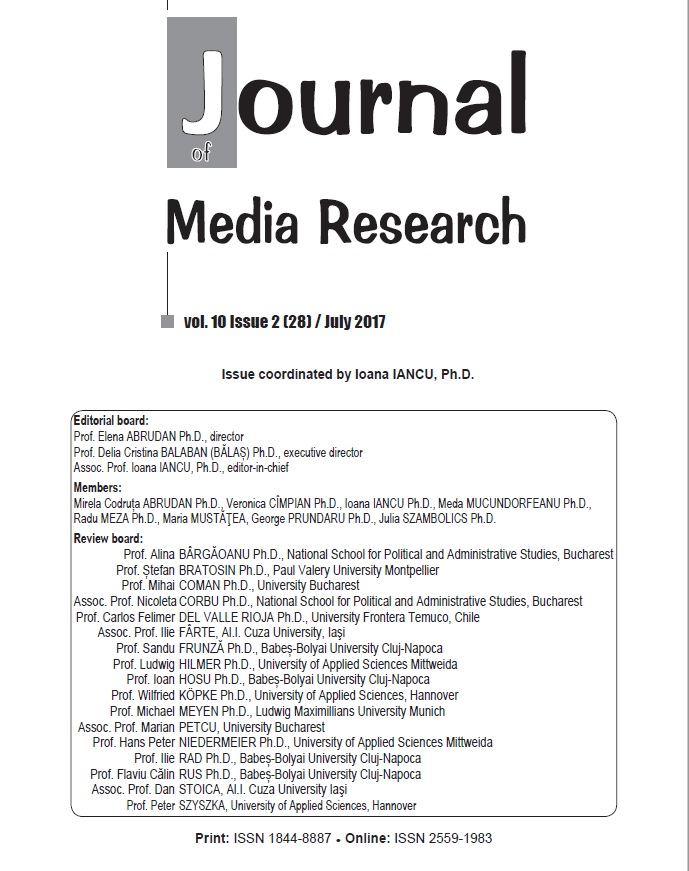Third-person Perception and Its Predictors in the Age of Facebook
Third-person Perception and Its Predictors in the Age of Facebook
Author(s): Dana Raluca Buturoiu, Flavia Durach, Georgiana Udrea, Nicoleta CorbuSubject(s): Social Sciences
Published by: Accent Publisher
Keywords: predictors of TPP; social media; persuasive messages; Facebook dependency; social comparison
Summary/Abstract: Originally proposed by Davison (1983), the TPE hypothesis maintains that people who are exposed to general persuasive media messages believe that these messages have a greater impact on others (i.e., “the third persons”) than on themselves. Although classic TPE studies have long focused on the traditional mass media, many studies show that this effect is also common with regards to newer media outlets. By means of a survey (N=688), this study seeks to explore (1) the link between TPE and new mediums of communication (i.e., Facebook) and (2) the predictors of the TPE in the age of social media. Main results show that young people evaluate others as being more influenced by news posted on Facebook than themselves. In terms of the overall third-person perception among young people, results point to the individual predictors as weighing more than the contextual variables. The most significant predictors of the TPE are Facebook usage patterns (Facebook dependency) and social comparison. Therefore, findings confirm the fact that newer media outlets such as Facebook tend to follow the line established by traditional media outlets in terms of TPE; new media platforms do exert consistent effects on young audiences, mainly in terms of rejecting persuasive messages.
Journal: Journal of Media Research - Revista de Studii Media
- Issue Year: 10/2017
- Issue No: 28
- Page Range: 18-36
- Page Count: 19
- Language: English
- Content File-PDF

